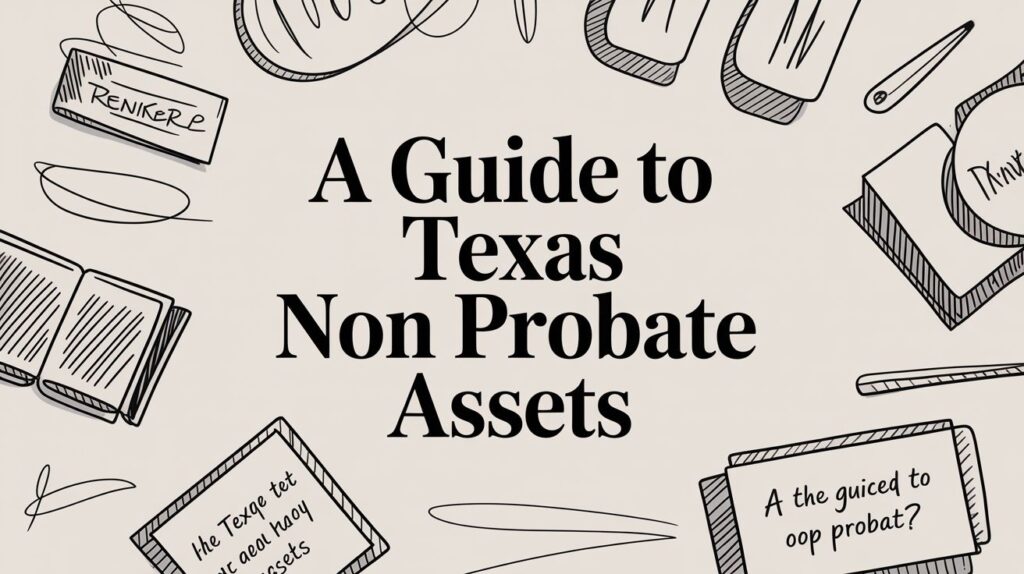The probate process in Texas can seem daunting, especially when you’re dealing with the loss of a loved one. It’s a legal procedure to ensure that a deceased person’s assets are distributed correctly and debts are settled. Navigating the intricacies of Texas probate law can be a challenging task. That’s where a probate attorney comes into play. Think of them as your legal quarterback, guiding you through each play. They are experts in the field and well-versed in the rules and regulations of Texas probate. Choosing the right probate law firm is as crucial as selecting the right players for a winning team. These firms are experienced in dealing with the nuances of Texas probate, and they can ensure that everything proceeds without a hitch.
In Texas probate, the deceased person’s will, if one exists, is presented in court. The court will then verify the will’s authenticity and appoint an executor responsible for managing the estate and ensuring assets are distributed according to the wishes outlined in the will. Probate cases in Texas are usually handled by a county probate court. The court oversees the entire process, ensuring that all debts, taxes, and other obligations are handled before assets are distributed to the heirs.
One thing to remember is that not all assets go through the probate process. Some assets, such as life insurance policies with designated beneficiaries or assets held in a trust, may pass directly to the beneficiaries outside of probate. To summarize, Texas probate is the legal process that distributes a deceased person’s assets. Texas probate law lays down the rules for this process, and a probate attorney or probate law firm can be your invaluable ally to ensure everything proceeds smoothly.
The Probate Process In Texas

Probate is the legal process of settling a deceased person’s estate. It ensures that debts are paid and assets are distributed according to the will or the law. Now, let’s dive into the key aspects of the Texas probate process.
When someone passes away, the first step is to open an estate by petitioning the appropriate Texas probate court. This is where having a probate attorney can be immensely helpful. They’ll guide you through the paperwork and ensure everything is done correctly.
Texas Probate Law: A Brief Overview
Texas has its own set of probate laws, determining how the process plays out. One critical aspect is whether the deceased person had a will.
- With a Will: If there’s a valid will, the court will generally follow the deceased’s wishes for asset distribution. The will might name an executor (the person responsible for handling the estate) or allow the court to appoint one.
- Without a Will: When there is no will, the court follows Texas laws of intestate succession to distribute assets. An administrator is typically appointed to manage the estate.
Key Players: Probate Attorneys and Law Firms
Probate can be complex, and this is where probate attorneys and law firms come into play. Probate law firms, like trusted friends, are there to offer a comprehensive service. They usually have a team of attorneys and experts, making the process smoother and faster. They’re your guides through this legal maze. These professionals have the experience and knowledge to ensure the process is as smooth as a Texan two-step.
The Role of the Probate Attorney

A probate attorney will assist in:
1. Understanding the Will: They’ll help interpret the will, if it exists, and ensure its validity.
2. Filing Legal Documents: They’ll handle the necessary paperwork, which can be quite extensive.
3. Asset Valuation: Determining the value of assets to assess taxes and debts.
4. Court Representation: If disputes arise, your attorney will represent you in court.
5. Asset Distribution: They’ll oversee the fair distribution of assets.
In Texas, probate can be a manageable experience. You can easily navigate the process with the right guidance, from probate attorneys to law firms. Remember that while probate can be time-consuming, it’s an essential legal process to ensure a fair and just distribution of assets.
So, whether you’re in the heart of Houston or the picturesque landscapes of Austin, rest assured that the Texas probate process has its Texan charm – a blend of law and tradition. If you find yourself in need of assistance, don’t hesitate to reach out to a reliable Texas probate attorney or law firm. They’ll be your guiding stars in this legal journey.
How To Plan For Probate In Texas: Tips and Strategies
Dealing with probate in Texas doesn’t have to be a daunting task. It’s a necessary legal process, but you can make it as smooth as possible with the right approach. We’ll explore practical tips and strategies to guide you through the probate journey.
Understand the Basics:
Before diving into probate, it’s crucial to grasp the basics. Probate is the legal process of distributing a deceased person’s assets and settling debts. This process can be relatively straightforward in Texas if you have a well-prepared estate plan.
Create a Comprehensive Estate Plan:

Creating a comprehensive estate plan is one of the best strategies for simplifying probate. This plan should include a will, healthcare directives, and powers of attorney. These documents can streamline the probate process and make your wishes clear.
Designate Beneficiaries:
Consider designating beneficiaries on your financial accounts and insurance policies. These assets typically pass directly to the beneficiaries, bypassing probate. This strategy can save time and reduce the complexity of the probate process.
Keep Your Records in Order:
Organization is key when planning for probate. Keep detailed records of your assets, debts, and important documents. This will make it easier for your executor to navigate the process. Make sure your loved ones know where to find these records.
Choose the Right Executor:
Selecting the right executor is crucial. This person will be responsible for managing your estate during the probate process. Pick someone you trust and who is willing to fulfill this role. Discuss your decision with them beforehand.
Consult an Attorney:
Enlisting the help of an experienced probate attorney is often a smart move. They can provide valuable guidance, ensure all legal requirements are met, and help you navigate the complexities of Texas probate law.
Minimize Debts:
Before your passing, consider strategies to minimize debts. Paying off outstanding debts or creating a plan to manage them can reduce the burden on your estate during probate.
Regularly Update Your Estate Plan:
Life circumstances change, and so should your estate plan. Review and update it as needed to ensure it remains aligned with your wishes and minimizes potential complications during probate.
Communication Is Key:
Open and clear communication with your loved ones is vital. Let them know about your estate plan and your wishes. This can help prevent disputes and ensure a smoother probate process.
Be Patient:
Probate can take time, so patience is essential. The length of the process can vary, but staying patient and being prepared for some delays will make the experience less stressful.
In conclusion, planning for probate in Texas can be manageable and efficient with the right approach. You can confidently navigate probate by understanding the process, creating a solid estate plan, and following these strategies. Remember, consult with a probate attorney for professional guidance, and regularly review your plan to keep it current.








